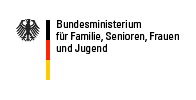Aspects
Defence – gender aspects
- Equal treatment: the Federal Equal Treatment Act applies to civilian employees of the Bundeswehr, while military personnel of the Bundeswehr are exempt. Therefore measures are needed to create equal conditions in both areas.
- Representation: 4.4 % of career and short-term soldiers and 35 % of the civilian employees of the Bundeswehr are female, and the number of women decreases as one goes higher up the hierarchy. This is an indication of discrimination and faulty decision-making based on gender rather than quality and suitability. GM can help to work towards this goal.
- Fair treatment in conscription for military service: the obligation to do military service continues to apply only to young men, although it has long been the case than not all men in an age group who are fit for military service are in fact conscripted. Women remain exempt from military service. With GM it is possible to record in a more nuanced way how the demands of modern armed forces can be brought into harmony which does justice to gender aspects with the demand for “fair treatment in conscription for military service”.
- Clichés: Traditional gender clichés are still deeply rooted in the heads of many male soldiers and lead to discrimination in daily life. Therefore, there is a need for ways to recognize role clichés for what they are and to demolish them.
- Sexual harassment: sexual harassment and mobbing between men and women are serious breaches of trust and undermine the principle of comradeship. Gender competence enables effective prevention strategies to be developed which include the perspectives of men and of women.
- Gender: the hierarchical gender relationship between men and women has the same origin as discrimination against people with a same-sex orientation: stereotyped fixation on a certain notion of “gender”. A comprehensive anti-discrimination approach takes that into account.
- Consequences of war: men and women are affected in different ways by violent conflict. For example, sexual assaults on the civilian population affect mainly women. Both male and female soldiers must be made aware of these issues before foreign missions.
Further reading
English:
Rehn, Elisabeth; Johnson Sirleaf, Ellen (Hg.): Women, War and Peace, UNIFEM, New York 2002
German:
Eifler, Christine; Seifert, Ruth (Hg.): Gender und Militär. Internationale Erfahrungen mit Männern und Frauen in Streitkräften, Königstein/Taunus 2003
Ahrens, Jens-Rainer/Apelt, Maja/Bender, Christiane (Hg.): Frauen im Militär. Empirische Befunde und Perspektiven zur Integration von Frauen in die Streitkräfte, Wiesbaden 2005
Eifler, Christine; Seifert, Ruth (Hg.): Soziale Konstruktionen – Militär und Geschlechterverhältnis, Münster 1999
Seifert, Ruth: Militär, Kultur, Identität. Individualisierung, Geschlechterverhältnisse und die soziale Konstruktion des Soldaten, Bremen 1999
Sozialwissenschaftliches Institut der Bundeswehr: Gutachten Nr. 2/2000 Teil 1 Die Öffnung der Bw aus Sicht männlicher Soldaten, Straußberg 2000
Kümmel, Gerhard; Klein, Paul; Lohmann, Klaus: Zwischen Differenz und Gleichheit: Die Öffnung der Bundeswehr für Frauen, Straußberg 2000
Kümmel, Gerhard; Biehl, Heiko: Warum nicht? – Die ambivalente Sicht männlicher Soldaten auf die weitere Öffnung der Bundeswehr für Frauen, Straußberg 2001
Kümmel, Gerhard; Werkner, Ines-Jacqueline (Hg.): Soldat, weiblich, Jahrgang 2001. Sozialwissenschaftliche Begleituntersuchungen zur Integration von Frauen in die Bundeswehr – Erste Befunde, Straußberg 2003
Seifert, Ruth: Krieg und Vergewaltigung. Ansätze zu einer Analyse, SOWI-Arbeitspapier Nr. 76, München 1993
erstellt von Administrator
—
zuletzt verändert:
02.01.2010 20:07





